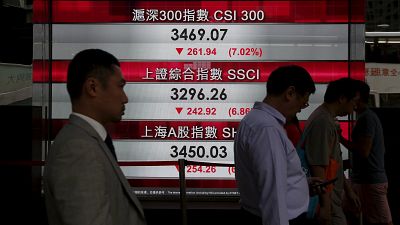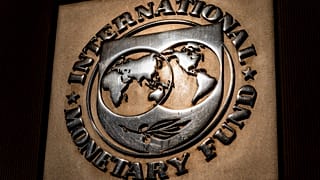China
Chinese stock markets slumped 7 percent on Monday halting trading in the opening session of 2016 as worries over the struggling economy and instability in the Middle East weighed heavily on investors.
The Shanghai Composite plunged 6.85 percent to 3296.66 and the Shenzhen Composite plummeted 8.1 percent.
Hong Kong’s Hang Seng index was also down 2.48 percent at 21,370.62.
Stocks in Australia, Japan, South Korea and India also fell.
In aftermath of #China stock market falls; tech-heavy Shenzhen down some 8%, worst day since global financial crisis https://t.co/e0xdaE1KAX
— Linda Yueh (@lindayueh) January 4, 2016
A private survey early in the day showed China’s factory activity contracted for the 10th straight month in December, and at a sharper pace than in November.
An official survey on Friday, which focuses on larger, state-owned firms, showed a fifth month of contraction, though a pick-up in the services sector could cushion the impact on the broader economy.
Investors also dumped stocks ahead of the imminent expiration of a share sales ban on listed companies’ major shareholders, which had been imposed during the market crash last summer.
The official Xinhua News Agency says China halted trading on the Shanghai and Shenzhen stock markets to stop steeper falls.
It is the first time China has used the “circuit breaker” mechanism it announced late last year.
That mechanism was introduced after 40% of the nation’s index was wiped out during the summer with the ruling Communist party prompted into huge government intervention as a result, including a ban on selling stocks.














01:00
Pix of the Day January 28, 2026
01:00
Ai Weiwei launches first solo exhibition in India
00:48
China warns against foreign interference in wake of Tanzania's contested election
01:09
Ukrainians protest against Russian participation in navy drills in South Africa
01:09
Chinese foreign minister begins annual Africa tour with Ethiopia visit
00:44
Chinese and Iranian warships arrive in South Africa for BRICS naval exercises